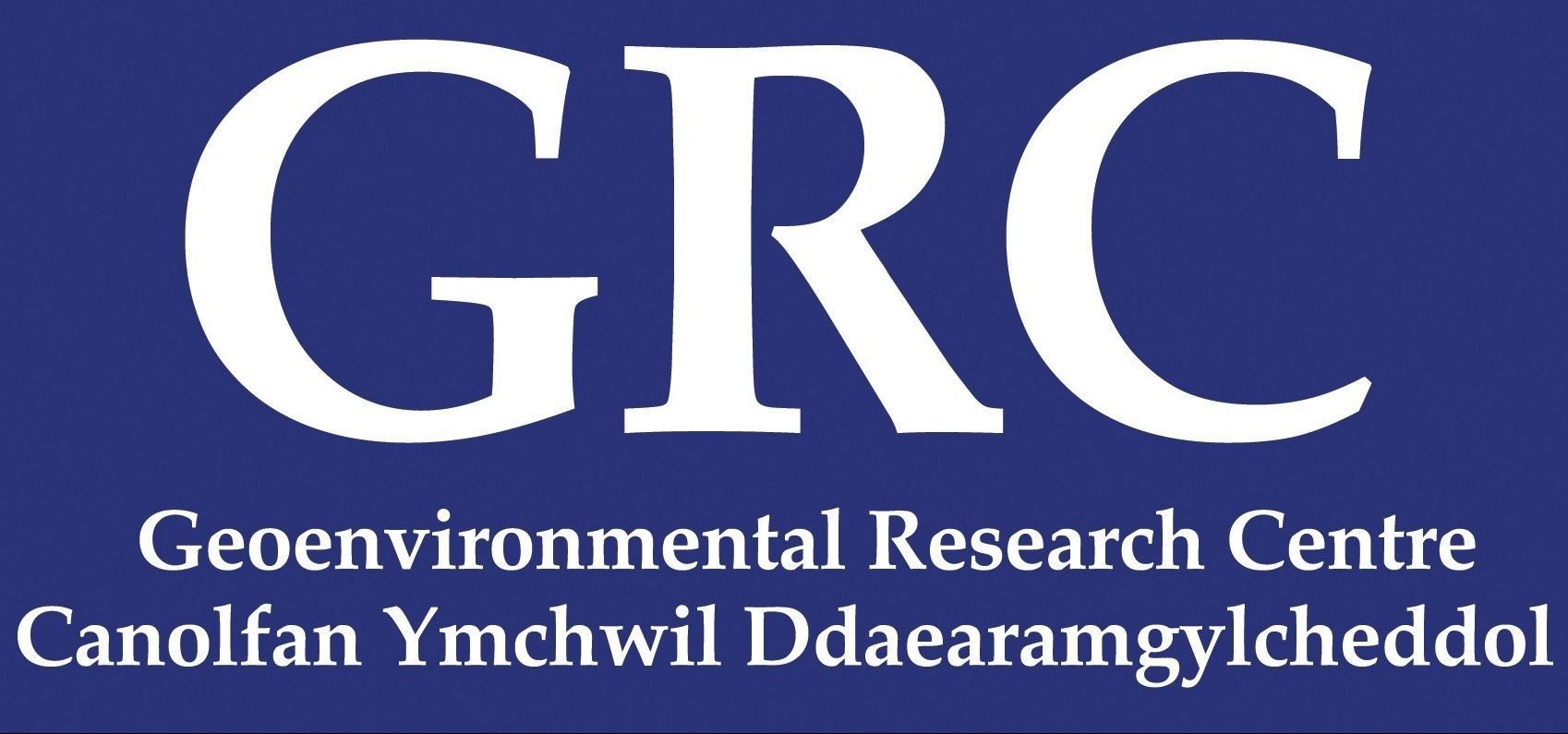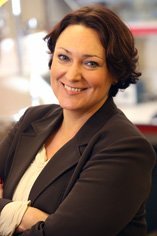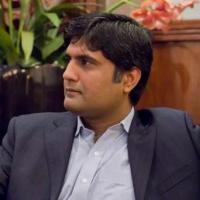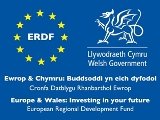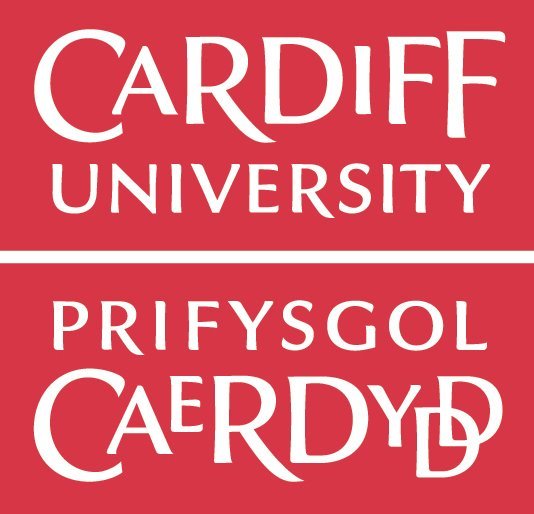UNESCO Chair in the Development of a Sustainable Geoenvironment, Cardiff University (2009)

Purpose/Objectives of the Chair/UNITWIN Network
Environmental problems are costing the earth finite resources and are adversely affecting all of its inhabitants – they tend to migrate through a variety of transport media often unlimited by location of occurrence. Such problems do not respect national boundaries – they are world issues that pose complex challenges to the international community. Contaminated and degraded terrestrial systems are just the tip of the iceberg. Agro-industrial waste is a major source of land degradation across the planet. Adverse environmental conditions are increasingly determining poor health and poor quality of life for many people – worsening poverty for many communities. The UNESCO Chair in The Development of a Sustainable Geoenvironment works to contribute to stalling and where possible reversing the contamination and degradation of terrestrial systems and the associated surface and groundwater systems. It provides a platform (through forums and networking) to exchange knowledge and experience to arrive at pragmatic solutions to geoenvironmental problems. The Chair focuses on vulnerable groundwater resources in rural India and West Africa. Under the supervision of the Chair, a decision support system has been designed and developed that facilitates policy makers, decision makers at local, national or regional level, researchers and academicians. The system brings together socioeconomic, public health and environmental dimensions into a decision making context which is important for sustainable development. The developed system can be considered as a useful modern governance tool, incorporating key factors into decision making and providing optimal solutions for critical questions.
Chairholder/Coordinator: Professor Hywel Thomas, FRS

Hywel Thomas is Professor of Civil Engineering, Pro Vice Chancellor for Research, Innovation and Engagement and a Founder Director of the Geoenvironmental Research Centre (GRC) at the School of Engineering, Cardiff University. His research interests in the Geoenvironmental Engineering field range from the basic to commercial development. In terms of technical details his work ranges from land regeneration to coupled multiphysics/geo-chemistry problems in soils to sustainability issues in general. Professor Thomas is regularly invited to give plenary and keynote presentations at various conferences worldwide. He has supervised over 70 research assistants and students, produced in collaboration with co-workers some 400 publications and delivered over 80 lectures to institutions or learned societies in 20 countries. A current focus of the Centre’s work is the development of Spatial Decision Support Systems for planning and development, while considering key environmental, socio-economic and public health aspects. Current interests include the geoenergy field, with applications to ground source heat, underground coal gasification, exploitation of unconventional gas and carbon sequestration in coal seams. Cardiff University was awarded the prestigious Queen’s Anniversary Prize for Higher and Further Education (2014) for the Centre’s ground-breaking research into solutions to the major challenges of land and groundwater quality and regeneration. Professor Thomas is a Fellow of the Royal Society, a Fellow of the Royal Academy of Engineering, a Fellow of the Learned Society of Wales and a Member of Academia Europaea.
UNESCO Research Fellow
Dr Aleksandra Koj joined the Geoenvironmental Research Centre as a Senior Research Associate in 2004 to investigate the issues of environmental protection, urban development and geoenergy from a sociological perspective. Aleksandra has a strong multidisciplinary perspective, built on the successful promotion, formulation and delivery of interdisciplinary research projects. She is experienced in bringing together different disciplines to develop sustainable solutions for such complex problems as urban management and regeneration on a local, regional, national and European level. Aleksandra was appointed by the United Nations Industrial Development Organization (UNIDO) as a Consultant on the socio-economic impacts of integrated and sustainable solutions for problems relating to Persistent Organic Pollutants (POPs). From August 2008, as a UNESCO Research Fellow, Aleksandra has led the social component of the GRC`s UNESCO Chair for the Development of a Sustainable Geoenvironment.
Dr Muhammad Irfan joined the Geoenvironmental Research Centre as a Research Assistant in 2014 to develop low carbon geoinformatics toolkits for geoenergy applications. His core areas of research are Spatial Decision Support Systems (SDSS), Web GIS, Geodatabase and spatial analysis. Under the supervision of the chair, he has recently developed an integrated, multicriteria, spatial decision support system, incorporating environmental, social and public health perspectives, for use in geoenergy and geoenvironmental applications. From January 2016, as a UNESCO Research Fellow, Irfan has led the geoinformatics and environmental monitoring component of the GRC’s UNESCO Chair for the Development of a Sustainable Geoenvironment.
Selected Publications
- Irfan M, Koj A, Sedighi M and Thomas HR. (2014). “GIS based site ranking using neighbourhood analysis and comparison”. Proceedings of the 6th International Conference on Advanced Geographic Information Systems, Applications, and Services (GEOProcessing 2014), Barcelona, Spain, pp. 51-57.
- Thomas HR and Sedighi M. (2014). “Computational modelling of ground energy problems”. Proceedings of the 3rd International Conference on Computational Methods for Thermal problems, Lake Bled, Slovenia, pp. 37-45.
- Sivasakthivel, T, Murugesan, K. and Thomas H.R. (2014). “Optimisation of operating parameters of ground source heat pump system for space heating and cooling by Taguchi method and utility concept”. Applied Energy, 116, pp. 76-85.
- Sedighi M and Thomas HR. (2014). “Micro porosity evolution in compacted swelling clays – A chemical approach”. Applied Clay Science, 101, pp. 608-618.
- Thomas HR and Sedighi M. (2015). “Thermal effects on chemical diffusion in multicomponent ionic systems”. Engineering Geology for Society and Territory, Applied Geology for Major Engineering Projects, Springer International Publishing, 6, pp. 525-528.
- Xie HJ, Thomas HR, Chen YM, Sedighi M, Zhan TLT, Tang XW. (2015). “Diffusion of organic contaminants in triple layer composite liners – An analytical modelling approach”. Acta Geotechnica, 10 (2), 255-262.
- Xie HJ, Zhang C, Sedighi M, Thomas HR, Chen Y. (2015). “An analytical model for diffusion of chemicals under thermal effects in semi-infinite porous media”. Computer and Geotechnics. 69. pp. 329-337.
- Hosking LJ, Thomas HR, Sarhosis V, Price N and Koj, A. (2015). “Assessment of reservoir conditions and engineering factors influencing coal bed methane recovery in the South Wales Coalfield”. Proceedings of the XV Pan-American Conference on Soil Mechanics and Geotechnical Engineering, Buenos Aires, Argentina. pp. 761-768.
- Sarhosis V, Koj A, Nowak, D, Kapusta K, Stanczyk K and Thomas HR. (2015). “Underground Coal Gasification: Moving Towards Commercialisation”. Proceedings of the XV Pan-American Conference on Soil Mechanics and Geotechnical Engineering, Buenos Aires, Argentina. pp. 753-760.
- Sarhosis V, Jaya AA., Hosking LJ, Koj A. and Thomas HR. (2015). “Techno-economics for coal bed methane production in the South Wales Coalfield”. Proceedings of the Clean Coal Technology Conference (CCT2015), Krakow, Poland.
- Sedighi M, Thomas HR and Vardon PJ. (2016) “Reactive transport of chemicals in unsaturated soils model development and verification”. Canadian Geotechnical Journal. 53(1). pp. 162-172.
- Hepburn,BDP, Sedighi M, Thomas HR, Manju. (2016). “Field-Scale monitoring of a horizontal ground source heat system”. Geothermics. 61. pp 86-103
- Xie HJ, Chen Y, Thomas HR, Sedighi M, Masum SA and Ran, Q. (2016). “Contaminant transport in the subsurface soils of an uncontrolled landfill site in China: Site investigation and two-dimensional numerical analysis”. Environmental Science and Pollution Research, 23. pp 2566-2575.
- Xie HJ, Yan HX, Thomas HR, Feng SJ, Ran QH, Chen PX. (2016). “An analytical model for vapour-phase volatile organic compound diffusion through landfill composite covers”. International Journal for Numerical and Analytical Methods in Geomechanics, DOI: 10.1002/nag. 2514.
- Hosking LJ and Thomas HR. (2016). “An investigation of different borehole layouts for carbon sequestration in coalbeds”. Proceedings of the 24rd UK Conference of the Association for Computational Mechanics in Engineering, Cardiff, Wales, UK. pp. 154-157.
- Irfan M, Koj AM, Thomas HR and Sedighi M. (2016). “Geographical General Regression Neural Network (GGRNN) Tool for Geographically Weighted Regression Analysis”. Proceedings of the 8th International Conference on Advanced Geographic Information Systems, Applications, and Services (GEOProcessing 2016), Venice, Italy, pp. 154-159.
- Zagorš?ak R, Sedighi M and Thomas HR (2016). “Effects of thermo-osmosis on hydraulic behaviour of saturated clays”. Accepted for publication in the International Journal of Geomechanics.
- Sedighi M, Hepburn BDP, Thomas HR, and Vardon PJ (2016). “Energy balance at the soil atmosphere interface”. Accepted for publication in Environmental Geotechnics.
- Sarhosis V, Lavis S, Mostade M and Thomas HR (2016). “Moving towards commercialisation of Underground Coal Gasification in the EU”. Accepted for publication in Environmental Geotechnics.
- Farr G, Sadasivam S, Manju, Watson IA, Thomas HR and Tucker D. (2016). “Low enthalpy heat generation potential of mine discharges in the South Wales Coalfield”. Accepted for publication in International Journal of Coal Geology.
- Sarhosis V, Jaya AA and Thomas HR (2016). “Techno-economic modelling of coal bed methane in the South Wales Coalfield”. Accepted for publication in Energy.
- Sadasivam S. and Thomas HR (2016). “Colour and toxic characteristics of metakaolinite-hematite pigment for integrally coloured concretes, prepared from iron oxide recovered from abandoned coal mine water treatment systems”. Accepted for publication in Journal of Solid State Chemistry.
Partners
- Centre for Sustainable Technologies, Indian Institute of Science, Bangalore
- Ministry of Science and Technology, Department of Science and Technology, Science and Society Division
- Centre for Geoenvironmental Engineering, Jawaharlal Nehru Technological University (JNTU) College of Engineering Hyderabad
- Indian Institute of Technology Rourkee
- Department of Food and Nutrition, University of Agriculture Sciences
- Environmental Protection Agency, Accra, Ghana
- Federal Ministry of Environment Abuja
Related Links
